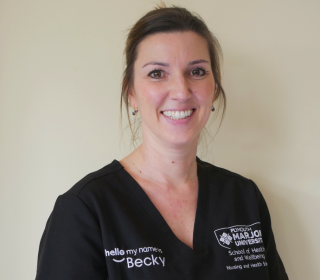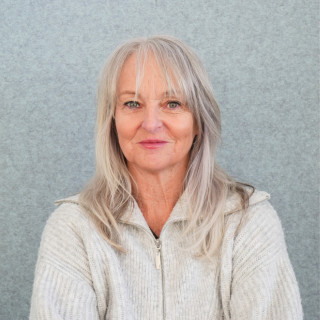BSc (Hons) Pre-registration Nursing
If you have a passion for working with people and enjoy helping improve and manage people's health, then you could start your journey to nursing with this Nursing and Midwifery Council-accredited degree.


Personalised pathways to proficiency: tailored training for exceptional adult nursing

Apply now for this course

Sign up for course news
Three A-Levels: BCC-BBB
BTEC: DMM-DDM
Or T levels at grade M
GCSE Maths Grade 4/C or above, or L2 Functional Skills GCSE English Grade 4/C or above, or L2 Functional Skills
An Access to HE Diploma with a minimum of 104 tariff points, of which at least 30 credits at Merit
Nursing Associates and Assistant Practitioners must have completed a recognised Level 5 programme of study and submit a Portfolio of Evidence for recognition of prior learning (RPL).
UCAS points 104 -120 UCAS Tariff points to include 64 UCAS Tariff points from 2 ‘A’ Levels, BTEC or equivalent
UCAS code NUR1
UCAS institution code P63
Duration 3 years
Full entry requirements
Applicants to the programme will be selected using a values-based recruitment process, where applicants are required to undertake a series of activities. Service users and employers form part of these activities and the formal panel. Upon entry to the programme, applicants must demonstrate:
- Suitability for their intended field of nursing practice: adult, mental health or learning disabilities nursing
- Values in accordance with The NMC Code (2018) Professional standards of practice for nurses, midwives and nursing associates
- Capability to learn behaviours in accordance with The Code
Candidates must also complete a satisfactory Enhanced Disclosure and Barring Service (DBS) check prior to starting the course.
Candidates must receive satisfactory occupational health clearance before starting the course. As part of the health clearance checks, candidates are required to provide information about their immunity and vaccination status. Candidates must prove they have been immunised against Rubella, Measles and Hepatitis B. We strongly recommend that all successful applicants (unless exempt on medical grounds) receive a full course of COVID-19 and Influenza vaccinations before starting the course.
Recognition of Prior Learning (RPL) and Recognition of Prior Experiential Learning (RPEL) can be applied for but cannot exceed 50% of the programme. The only exception to this is if a candidate is a registered nurse with an active PIN without restrictions on the NMC register and wishes to gain additional NMC registration in another field of nursing. In this instance, applicants can apply for more than 50% RPL/RPEL. All RPL claims for NMC programmes are assessed on an individual basis and approved by an external examiner as part of the School of Health and Wellbeing's RPL/RPEL processes.
Course Summary
We prioritise hands-on learning in a safe and supportive environment. Our curriculum is designed to provide students with extensive exposure and tailored experiences to prepare them for a successful career in adult nursing. Our first-class simulation suites are at the heart of our programme. Here, students engage with scenarios that mirror actual clinical situations. This innovative approach allows for repeated practice and gradual skill mastery in a controlled setting. By the time students transition to clinical placements, they are confident and well-prepared to handle diverse patient cases.
We believe that exposure to a variety of clinical settings is key to discovering a passion and final destination specialising in adult nursing. That's why our programme incorporates two placements per year. These placements are carefully selected to offer a wide spectrum of experiences, from acute care settings to community health which means that students can explore different facets of adult nursing and make informed decisions about their future career paths.
Our dedicated faculty comprised of seasoned nursing professionals are committed to providing mentorship and guidance throughout your academic journey. They bring a wealth of experience to the classroom and are passionate about nurturing the next generation of leaders. Students have access to personalised feedback, ensuring their growth and development as competent and compassionate nurses.
We foster a close-knit community where open communication and collaboration are encouraged. Students have the opportunity to learn from their peers and build supportive relationships that extend beyond the classroom. This sense of community strengthens their overall learning experience. By the end of our programme, graduates will possess the skills, knowledge, and confidence needed to excel in the dynamic field of adult nursing. They will be equipped to provide high-quality, patient-centred care in a variety of clinical settings.
Why study nursing at Marjon?
Learn from seasoned experts in adult nursing, ensuring a top-tier education.
Build your experience in our first-class simulation suites so you feel confident in real-world practice.
Get prepared for a diverse array of clinical settings with two placements each year so you discover what your passions are and select the right career path.
In a close-knit community like Marjon, you'll find a support network and strong friendships with other student nurses.
This programme is designed to accommodate you and your life commitments, so being a single parent or a mid-life career changer shouldn't stop you from applying!
With a distinctive blend of expert-guided education, top-class facilities, and diverse clinical exposures, you will graduate with a solid foundation to take on to your professional career.
Modules for this course
1st Year
Essentials of nursing practice
Placement 1 - Integrated care for nursing students
Social determinants of health
Biological and pharmacological aspects of health and wellbeing
Placement 2 - Integrated care for nursing students
2nd Year
The role of evidence-based practice in clinical decision-making
Placement 1 - Enhancing care and clinical decision making
Developing knowledge and skills in complex care
Placement 2 - Improving safety & quality of care for those with complex needs in practice
3rd Year
Healthcare management
Placement 1 - Healthcare management in practice
Quality improvement
Placement 2 - Improving quality of care
What might I become?
On successful completion of the programme, you'll be eligible to apply to register with the Nursing and Midwifery Council (NMC) as an Adult Nurse. As an Adult Nurse, you may work in various settings including hospitals, community health centres, residential care facilities, and schools.
Your responsibilities could include assessing and planning care, administering medications, providing emotional support, and advocating for the rights of individuals with physical illness.
This programme could open doors to advanced roles such as clinical nurse specialist, nurse manager or supervisor, or even positions in research or policy development related to learning disabilities nursing.
You may have opportunities for further education and specialisation or advanced nursing practice. This programme prepares you for a fulfilling career dedicated to making a positive impact in the field of adult nursing.
How you’ll be taught and assessed?
How will you be taught?
The teaching approach for this programme is diverse and dynamic. It includes conventional methods like lectures, seminars, and tutorials, complemented by e-learning to give you flexibility around life commitments.
Personal and professional development planning empowers students, while workshops, peer learning, and guest speakers enhance practical skills. Practice-based, problem-based, and interprofessional learning stimulate critical thinking. Coaching and mentoring offer you personalised support and clinical simulation provides hands-on experience.
Blended learning combines various resources and perspectives from service users and carers to add real-world insights. Directed study encourages your independent learning, supported by a wealth of online resources. Masterclasses bring specialised expertise to enrich the learning experience. This multifaceted approach prepares you to excel as a specialised nurse in adult nursing.
How will you be assessed?
The assessment process for this programme is designed to comprehensively evaluate students' knowledge, skills, and application of nursing principles. It encompasses a balanced mix of formal and summative assessments, ensuring ongoing feedback and a final measure of proficiency in practice.
Assessments may include written assignments, reflective portfolios, practical assessments, and a project. This diverse range of evaluation methods aims to accommodate various learning styles and effectively gauge students' readiness to practice as competent and compassionate Adult Nurses.
Additionally, our team is committed to providing constructive feedback, guiding students towards continuous improvement and excellence in their nursing practice.
Fees and funding
Fees UK students: £9,535
Fees for International students: £14,600
This fee covers your tuition and access to course-specific equipment and facilities, as well associated services including access to the library, study skills support, IT support, student support and wellbeing services and membership of the Student Union. There may be additional costs by course.
Additional costs:
Additional costs:
- Disclosure and Barring Service (DBS) enhanced check (Annual Update Service or dated within 6 months of the start of the course)
- Evidence that an occupational health declaration has been completed prior to starting the programme
- Evidence of all required vaccinations being up-to-date
- Travel to and from placement
- Accommodation and general living costs
- Textbooks
- Stationary
- Printing/Photocopying
- Membership of a Union (Optional but advised)
- NMC registration on completion of the programme.
- There may be some discretionary trips and other activities to support your studies
Funding available for this course
This course may entitle you to access the NHS Learning Support Fund training grant, which will cover £5,000 of your fees for each academic year. You can find out more about the grant, including criteria for eligibility, via this link.
Our Student Funding Advisors offer confidential and impartial advice about your funding options.
Student funding adviceLecturers
Frequently asked questions
Q1 What resources and facilities are available to students on-campus to support me in the clinical setting?
Q2 How does the university support students in terms of career guidance and job placement after graduation?
Q3 What is the learning environment like at Plymouth Marjon University, and how is diversity and inclusion valued within the programme?
Q4 What types of placements can I expect in the first 18 months, and how do they prepare me for my future career?
Find out more about studying at Marjon

Get a prospectus
Download your digital prospectus now, or order a paper copy and we'll send it to you free of charge!

Join our mailing list
Signup for emails about our courses and be the first to find out the hottest news





